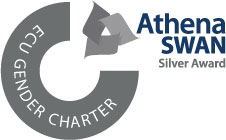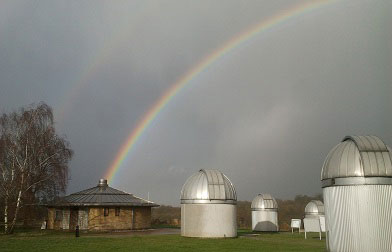Equality, diversity and inclusion in the Department of Physics, Astronomy and Mathematics
 Only 23% of all Science, Technology, Engineering, Mathematics and Medicine (STEMM) jobs in the UK are held by women (WISE 2017).
Only 23% of all Science, Technology, Engineering, Mathematics and Medicine (STEMM) jobs in the UK are held by women (WISE 2017).
 In the Department of Physics, Astronomy and Mathematics we encourage all our students to pursue careers in STEMM professions and support both the Juno project and the Athena SWAN Charter.
In the Department of Physics, Astronomy and Mathematics we encourage all our students to pursue careers in STEMM professions and support both the Juno project and the Athena SWAN Charter.
How we create a supportive environment for people in science
 We are a welcoming department and are active in promoting a safe, diverse and inclusive environment for everyone.
We are a welcoming department and are active in promoting a safe, diverse and inclusive environment for everyone.
PAM’s Equality Committee works to remove barriers for LGBT+, BAME and women to create an equal workspace beneficial to all.
PAM has a zero-tolerance non-discrimination policy informed by the UH Equality and Diversity department and underpinned by University-wide Bullying and Harassment policy.
Project Juno and Athena SWAN
Science cannot reach its full potential unless it can benefit from the talents of the whole population, and until women and men can benefit equally from the opportunities it affords. Project Juno and Athena SWAN act as catalysts to achieve this cultural shift.
 In the Department of Physics, Astronomy and Mathematics, the commitment to progressing women's careers in science and mathematics spans all levels, from undergraduate students to the Head of Department.
In the Department of Physics, Astronomy and Mathematics, the commitment to progressing women's careers in science and mathematics spans all levels, from undergraduate students to the Head of Department.
Our engagement with equality and diversity to date has been recognised by the following awards:
- Athena SWAN Silver departmental award (April 2018) (PDF - 3.14 Mb)
- Juno Champion status (July 2019) (PDF - 0.62 Mb)
Support from the Senior Management
I fully support the efforts of our Equality Committee to create an inclusive community in the Department where all can flourish, regardless of their gender, ethnicity or background, and where nobody is held back from career or personal development. The Equality Committee's work, recognised by an Athena SWAN Silver award and Juno Champion status from the Institute of Physics, has helped us to build a culture that promotes equality and diversity amongst the staff and student body in PAM.
Martin Hardcastle, Head of Department
As a husband endeavouring to support my wife in achieving her career aspirations alongside my own, and as a father and primary carer of two young children, I recognise some of the personal and cultural pressures which affect women in pursuing their career choices. When these pressures operate in an environment in which women are already underrepresented, as in physics and mathematics, both conscious and unconscious biases can act against their progression. The Juno and Athena Swan programmes allow us to focus our efforts to address these biases in a more concerted and effective way.
Sean Ryan, Professor of Astrophysics